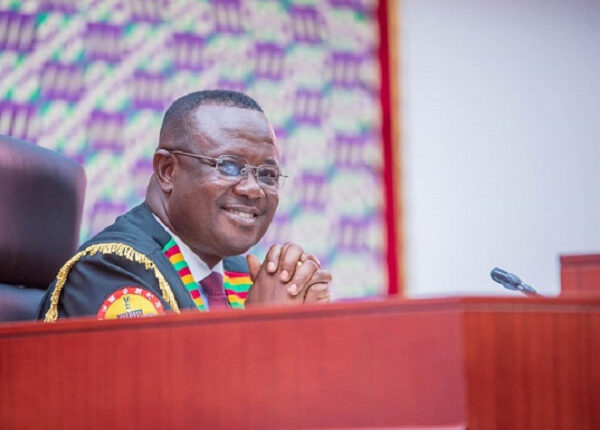Deputy Speaker can vote while presiding in Parliament – Supreme Court
In a unanimous decision, the Supreme Court has ruled that a deputy Speaker can vote when acting in the capacity of a Speaker in Parliament.
This means the deputy speaker can be counted during the formation of a quorum for any critical issue on the floor of Parliament, even in the Speaker’s absence.
The ruling on Wednesday, March 9, by a seven-member panel affirms the position of the First Deputy Speaker of Parliament, Joseph Osei Owusu, that he did nothing wrong by voting to approve the 2022 budget in the Speaker’s absence.
A suit filed by a lawyer, Justice Abdullai, sought to challenge the constitutionality of the First Deputy Speaker, Joseph Osei-Owusu, in counting himself as an MP when he presided over the passage of the 2022 budget on November 30, 2021.
The suit was filed at a time when there seemed to be growing incoherence in the decisions of Speaker Alban Bagbin and his First Deputy, Joseph Osei-Owusu.
Justice Abdullai believes that the 1992 Constitution does not allow a person presiding over proceedings in Parliament to have a casting vote or to be part of a quorum. A casting vote is an extra vote given by a chairperson to decide an issue when the votes on each side are equal.
His argument is based on Article 102 of the 1992 Constitution, which provides that “a quorum of Parliament, apart from the person presiding, shall be one-third of all Members of Parliament.
Article 104 (1) also provides that matters in Parliament shall be determined by votes of majority members present and voting, with at least half of all members of Parliament present.
He also cites Article 104 (2) of the 1992 Constitution, which stipulates that: “The Speaker shall have neither original nor casting vote.”
It is the case of Mr Abdulai that the First or Second Deputy Speakers of Parliament, when presiding, have the “same authority and mandate just like the Right Honourable Speaker” and therefore cannot vote or be part of the quorum.
But the Attorney-General disagreed.
Godfred Yeboah Dame argued that the quorum in Parliament formed under Article 102 is different from the quorum formed under Article 104 of the 1992 Constitution.
It is the case of Mr Dame that the quorum under Article 102 is for the conduct of business in Parliament, and that is why Article 102 provides that it should be one-third of members.
“Given that Parliament presently is made up of 275 members, the quorum under Article 102 for the conduct of its business is 92 MPs,” the A-G submitted.
According to the A-G, based on the clear provision of Article 102, any person presiding, either the Speaker or Deputy Speakers, is precluded from being part of that quorum.
On the other hand, the A-G is of the view that the quorum under Article 104 (1), which deals with the determination of matters through voting in Parliament, requires at least half of all MPs, and such a quorum is not the same as the one in Article 102.
Mr Dame contends that unlike Article 102, which precludes a “person presiding” from being part of the quorum, Article 104 (2) specifically precludes “The Speaker”.
The A-G, therefore, holds the position that only the person elected as “The Speaker” of Parliament is barred from forming part of the quorum under Article 104 when presiding, and not the Deputy Speakers who preside over proceedings.
The panel, however, sided with the arguments of the Attorney-General.
The panel chaired by Justice Dotse said the approval of the budget was valid, and the deputy speaker has a right to be counted.
The apex court also struck down order 109(3) of the standing orders of Parliament, which prevented a deputy speaker presiding from voting, as unconstitutional.
The unanimous decision was given by Justices Jones Dotse, Nene Amegather, Prof Ashie Kotey, Mariama Owusu, Lovelace Johnson, Clemence Honyenuga and Yonny Kulendi.
Meanwhile, the Minority in Parliament has described the Supreme Court judgment as judicial support for the controversial E-Levy.
Addressing the media, Minority Leader Haruna Iddrisu accused the judiciary of interfering in the legislature’s work, which is another independent arm of government.
The Tamale South MP stated the ruling means deputy speakers must be stripped of their courtesies since the judgment makes them ordinary MPs, contrary to the UK and other jurisdictions.



